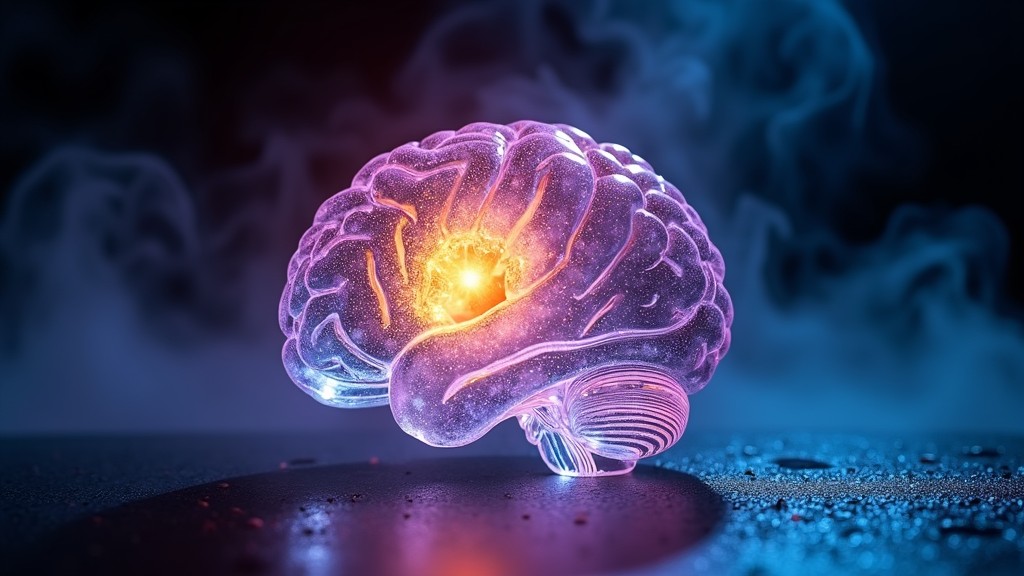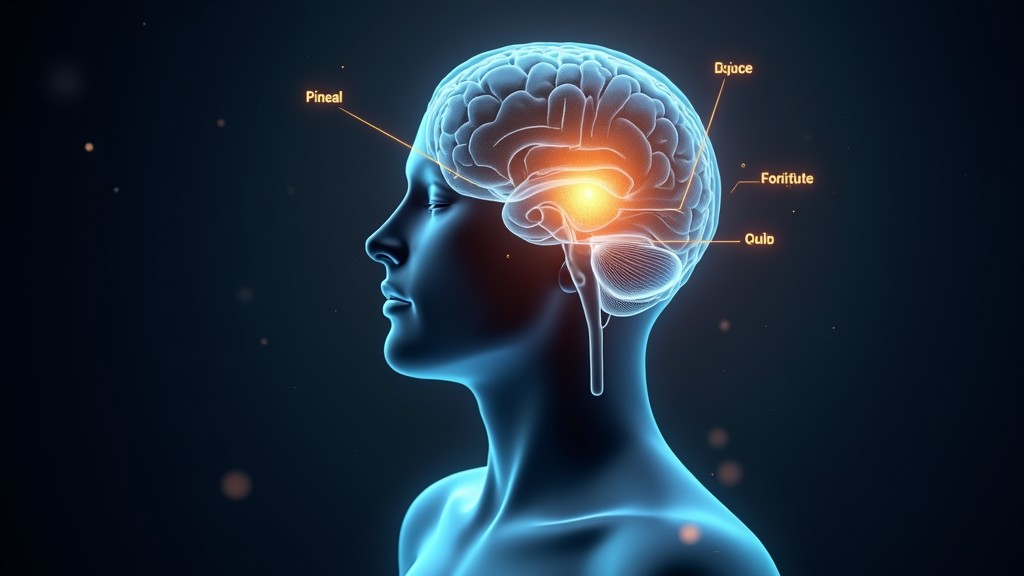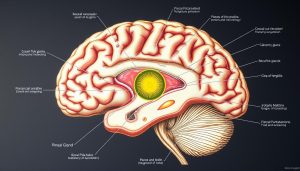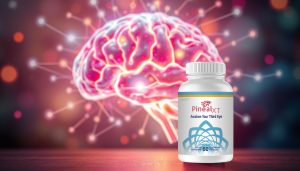Ever stumbled over the word ‘pineal gland'? You're not alone. It's one of those terms that trips up even the best of us. This tiny part of the brain has a big role in regulating sleep and has been linked to spiritual practices for ages. But if you're saying it wrong, you might be missing out on some of its deeper meanings. Let's dive into why getting it right is more important than you might think.
- Understanding the Pineal Gland
- Common Mispronunciations of 'Pineal Gland'
- How to Correctly Pronounce 'Pineal Gland'
- The Connection Between Pronunciation and Spiritual Practices
- Exercises to Improve Pronunciation
- The Science Behind Pronunciation and the Pineal Gland
- Enhancing Your Spiritual Journey Through Correct Pronunciation
- Wrapping It Up: The Power of Pronunciation
- FAQ - Frequently Asked Questions
Key Takeaways
- The pineal gland is crucial for sleep regulation and has spiritual significance.
- Many people mispronounce ‘pineal gland', affecting communication and understanding.
- Correct pronunciation can enhance spiritual practices.
- Simple exercises can improve your pronunciation skills.
- Understanding the science and spirituality of the pineal gland can enrich your life.
Understanding the Pineal Gland
The Role of the Pineal Gland in the Body
The pineal gland is a tiny, yet significant, part of our brain. Nestled in the center of our head, it serves as the body’s internal clock, regulating sleep patterns through the secretion of melatonin. This hormone, derived from tryptophan, is crucial for managing our sleep-wake cycles and aligning these rhythms with the day-night cycle. Without it, our biological rhythms would be in chaos. The pineal gland also plays a part in seasonal reproductive functions and mood regulation.
Historical Perspectives on the Pineal Gland
Historically, the pineal gland has intrigued philosophers and scientists alike. René Descartes famously referred to it as the “seat of the soul” in the 17th century. Ancient cultures often linked it to mystical and spiritual experiences. Despite its small size, this gland has been the subject of numerous theories regarding its function and significance in both the physical and metaphysical realms.
The Pineal Gland and Spirituality
In many spiritual traditions, the pineal gland is often associated with the “third eye,” a mystical concept symbolizing intuition and spiritual insight. It is believed to be a gateway to higher consciousness, allowing individuals to access deeper levels of awareness and psychic abilities. Practices such as meditation, yoga, and certain diets are thought to stimulate the pineal gland, enhancing one's spiritual journey.
The pineal gland acts as a bridge between the physical and spiritual worlds, enabling a deeper connection with one's inner self and the universe.

Common Mispronunciations of ‘Pineal Gland'
Why Pronunciation Matters
Pronouncing words correctly isn't just about sounding smart; it's about clear communication. When we mispronounce words, especially in scientific or medical contexts, it can lead to misunderstandings. The word ‘pineal' is often mispronounced, leading to confusion about this important gland's role and function. This can be particularly problematic in educational settings or when discussing health-related topics.
Common Mistakes People Make
Many people trip over the word ‘pineal,' often saying “pin-ee-al” or “pine-al” instead of the correct pronunciation. Here's a quick list of common errors:
- “Pin-ee-al”
- “Pine-al”
- “Pine-yul”
These mistakes can sometimes make it hard for others to understand what you're talking about, especially if they're familiar with the correct term.
How Mispronunciation Can Affect Understanding
Mispronouncing ‘pineal gland' might not seem like a big deal, but it can affect how information is received. If someone hears it wrong, they might misunderstand the context or importance of the gland. It can also cause embarrassment in professional settings or during discussions about health and wellness. In some cases, it might even lead to incorrect assumptions about related topics, like the habenula, which is associated with the pineal gland.
How to Correctly Pronounce ‘Pineal Gland'
Phonetic Breakdown of ‘Pineal Gland'
Getting the pronunciation right for ‘pineal gland' can be surprisingly tricky. The word ‘pineal' is pronounced as PYE-nee-uhl. Breaking it down, the first syllable “PYE” rhymes with “eye” and “pie,” while the second syllable “nee” sounds like “knee.” The last part “uhl” is a soft “uh” sound followed by “l.” The word “gland” is straightforward, pronounced as “gland,” just like it looks.
Tips for Practicing Pronunciation
To master the pronunciation of ‘pineal gland,' try these simple steps:
- Listen and Repeat: Use audio resources to hear the correct pronunciation. Learn how to pronounce ‘pineal gland' with examples from the Cambridge English Dictionary.
- Break It Down: Focus on each syllable separately before putting them together.
- Practice Regularly: Daily practice can help solidify the correct pronunciation in your mind.
Audio Resources for Learning
Utilizing audio resources can be a game-changer. Listening to the pronunciation repeatedly helps your brain to memorize the correct sounds. Many online dictionaries offer audio examples, which can be replayed as often as needed. Consider recording yourself to compare with the correct pronunciation.
The Connection Between Pronunciation and Spiritual Practices
The Impact of Sound on the Pineal Gland
The pineal gland, often referred to as the “third eye,” plays a pivotal role in spiritual experiences and consciousness. Correct pronunciation of certain sounds is believed to stimulate this tiny gland, enhancing spiritual awareness. Ancient traditions assert that specific vibrations can activate the pineal gland, releasing what is known as “ojas,” a vital essence in the body. This connection between sound and the pineal gland suggests that how we articulate words can have profound effects on our spiritual and physical well-being.
Pronunciation in Meditation and Yoga
In meditation and yoga, pronunciation is not just about getting the words right—it's about creating the right energy. Mantras, which are central to these practices, require precise articulation to unlock their full potential. Here's why pronunciation matters in these practices:

- Energy Activation: Proper pronunciation is thought to activate energy centers, or chakras, aligning them for optimal flow.
- Focus and Concentration: Pronouncing mantras correctly helps maintain focus, deepening meditation practices.
- Harmony and Balance: The right sounds can bring harmony to the mind and body, promoting balance.
Cultural Significance of Correct Pronunciation
Different cultures have long recognized the power of sound in spiritual practices. In many traditions, the correct pronunciation of sacred texts and mantras is seen as a way to connect with the divine. This cultural emphasis on pronunciation highlights its importance beyond mere communication:
- Preservation of Tradition: Accurate pronunciation ensures that spiritual teachings are passed down correctly.
- Spiritual Integrity: It reflects a commitment to the authenticity and integrity of spiritual practices.
- Connection to Ancestors: Pronouncing words as they were intended can create a link to past generations and their wisdom.
The sounds we utter are not just words; they are vibrations that can transform our spiritual journey. By embracing the correct pronunciation, we align ourselves with the ancient wisdom that guides our path.
Exercises to Improve Pronunciation
Daily Pronunciation Drills
Practicing daily can make a big difference in your pronunciation skills. Start by choosing a few words or phrases you struggle with. Say them out loud, slowly at first, then gradually increase your speed. Consistency is key here. You might even want to record yourself to track your progress over time. Try this simple routine:
- Pick three words you find difficult.
- Repeat each word ten times.
- Focus on clarity and accuracy.
- Record and listen to your pronunciation.
- Adjust based on what you hear.
Using Technology to Aid Pronunciation
These days, technology can be your best friend when it comes to pronunciation. There are apps and tools designed to help you get better. Use apps that offer interactive phonetic exercises or those that provide feedback on your pronunciation. Some popular ones include:
- Speech recognition apps
- Language learning platforms
- Online dictionaries with audio examples
Incorporating Pronunciation into Daily Life
Make pronunciation practice a part of your everyday routine. Integrate it into activities you already do. For instance, while reading a book, take a moment to pronounce tricky words out loud. Or, when watching TV, mimic the actors' speech. This not only makes practice more enjoyable but also more effective. Here are some tips:
- Read aloud for 10 minutes each day.
- Repeat phrases from your favorite shows.
- Engage in conversation groups focusing on pronunciation.
Improving pronunciation doesn't happen overnight. It's about making small, consistent efforts every day. Over time, these efforts add up, leading to noticeable improvements.
The Science Behind Pronunciation and the Pineal Gland

Research on Sound and the Pineal Gland
The pineal gland, often referred to as the body's third eye, plays a crucial role in regulating sleep and circadian rhythms. Recent studies suggest that sound, particularly the way we pronounce words, might have a deeper connection to this tiny gland. Some researchers propose that the vibrations from certain sounds can stimulate the pineal gland, affecting its production of melatonin, the hormone responsible for sleep regulation.
Scientific Studies on Pronunciation
Pronunciation isn't just about getting words right; it might actually influence our biological processes. Scientists have begun to explore how the articulation of words can affect brain activity. Preliminary findings indicate that the rhythm and tone of speech might resonate with brain waves, potentially impacting cognitive functions and emotional states. This could explain why certain sounds or chants are used in meditation and spiritual practices to achieve a sense of calm and focus.
The Biological Effects of Sound on the Body
Sound waves are more than just noise; they can have profound effects on the body. When we speak, the vibrations from our vocal cords can influence our nervous system. Properly pronounced words might create harmonious vibrations that promote relaxation and well-being. On the flip side, mispronounced words could lead to discordant vibrations, causing stress or discomfort. Understanding the biological effects of sound could open up new avenues for therapeutic practices, using sound as a tool for healing and wellness.
Imagine a world where simply speaking a word correctly could enhance your mental clarity or improve your mood. This isn't just a fantasy; it's a growing area of research that could change how we approach health and wellness.
Enhancing Your Spiritual Journey Through Correct Pronunciation

Aligning Chakras with Sound
Unlocking the power of sound can be a game-changer in your spiritual journey. When you correctly pronounce mantras, you align your chakras, the energy centers in your body, with precision. Each chakra resonates with specific sounds. By focusing on the right pronunciation, you can open your spiritual chakras, particularly the third eye, located between your eyebrows. Chanting sounds like “OM” or “AUM” can activate these chakras, helping you tap into deeper spiritual states.
The Role of Mantras in Spiritual Growth
Mantras are not just words; they're vibrations that hold the power to transform your spiritual journey. When said correctly, these sounds can unlock doors to higher consciousness. Think of it as having the right key to a lock. Mispronounce it, and you might be stuck outside, missing out on the profound experiences that await.
“Every sound you utter is a step on your spiritual path. Make it count by getting it right.”
How Pronunciation Influences Spiritual Awareness
Correct pronunciation isn't just a matter of etiquette; it's essential for spiritual growth. When you articulate sounds accurately, you create harmonious vibrations that resonate with your body's energy fields. This can lead to heightened awareness and a deeper connection with your inner self. By mastering pronunciation, you open new pathways in your spiritual journey, allowing you to explore realms of consciousness you never thought possible.
To wrap it up, pay attention to how you say your mantras. It's not just about the words but how they vibrate through you. With practice, you'll notice a shift in your spiritual awareness, paving the way for a more profound journey.
Wrapping It Up: The Power of Pronunciation
So there you have it, folks. Getting the pronunciation of ‘pineal gland' right might seem like a small thing, but it can make a big difference. It's not just about saying a word correctly; it's about unlocking a deeper understanding and connection to ancient wisdom and modern science. Whether you're diving into yoga, exploring meditation, or just curious about the mysteries of the mind, knowing how to pronounce ‘pineal gland' is a step in the right direction. Remember, every word we speak carries energy, and pronouncing them correctly can open doors to new experiences and insights. So next time you talk about the pineal gland, say it with confidence and let the magic unfold.
FAQ – Frequently Asked Questions
What is the pineal gland?
The pineal gland is a small part of the brain that helps control sleep by making a hormone called melatonin.
Why is the pineal gland called the ‘third eye'?
The pineal gland is often called the ‘third eye' because it is linked to spiritual insight and intuition in some cultures.
How do you pronounce ‘pineal gland'?
The correct pronunciation is ‘pie-nee-ul gland.'
Why do people mispronounce ‘pineal gland'?
People often mispronounce ‘pineal gland' because they are not familiar with the word and its correct pronunciation.
How can I improve my pronunciation of ‘pineal gland'?
You can practice saying ‘pie-nee-ul gland' slowly and listen to audio guides to get better at pronouncing it.
Does the pronunciation of ‘pineal gland' affect its function?
No, the way you say ‘pineal gland' does not change how it works in your body.











